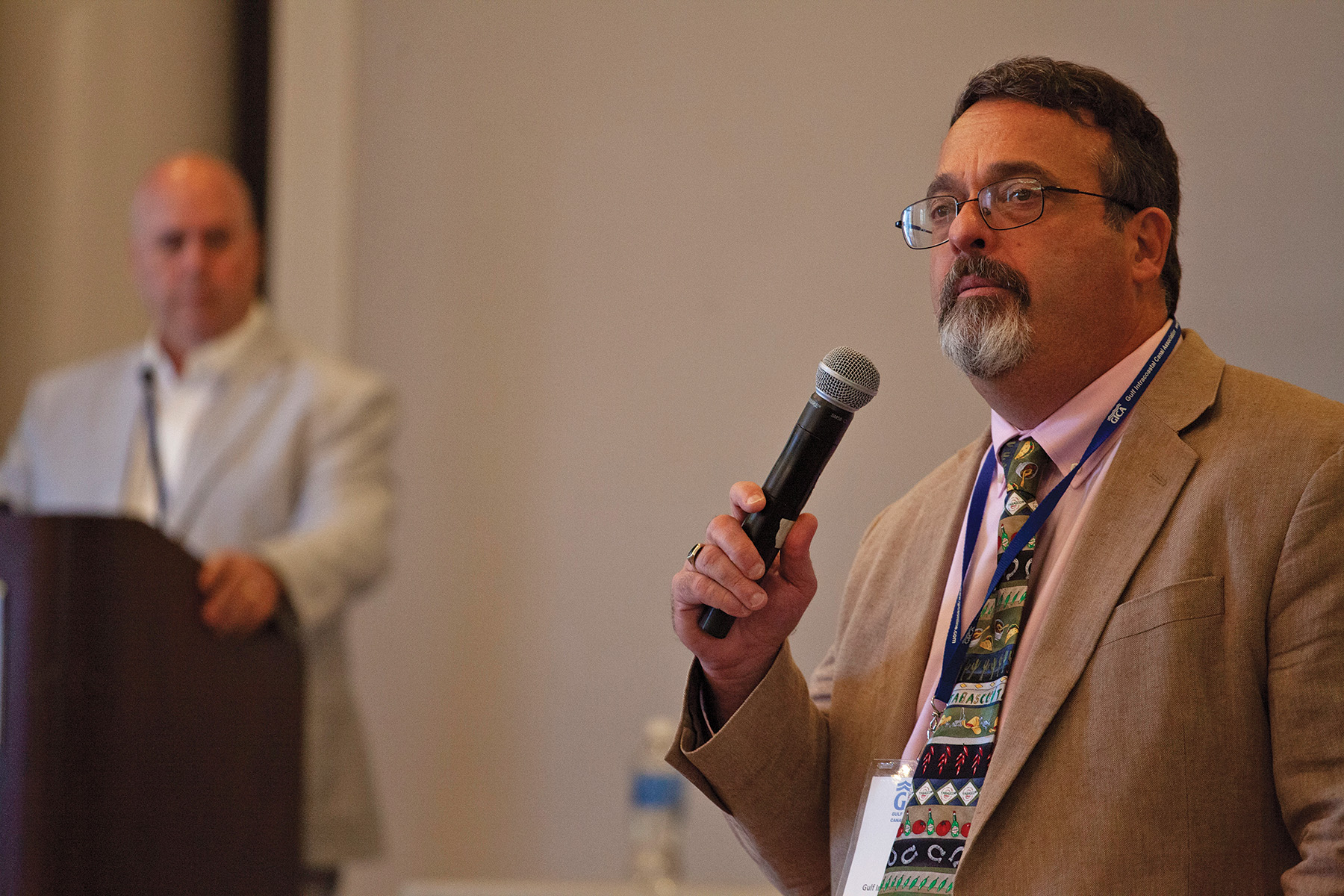The 119th annual Gulf Intracoastal Canal Association (GICA) Seminar met in New Orleans August 7-10 with a packed agenda that tackled everything from project funding at the national level down to the wellbeing of mariners serving along the Gulf Intracoastal Waterway and beyond.
Rear Adm. David Barata, commander of the Eighth Coast Guard District, was the opening speaker. Barata told attendees that, judging from the agenda, the day-long gathering would be fruitful and constructive for both the waterway and its stakeholders.
“I think we’ve got the right people in the room to talk about the right things,” he said.
Barata overviewed the Coast Guard’s response to Hurricane Beryl, which made landfall in July as a Category 1 storm near Matagorda, Texas. Barata emphasized the cooperation between the Coast Guard, industry and other stakeholders ahead of the storm, which proved somewhat difficult to forecast from both an intensity standpoint and in terms of storm surge. The storm surge estimate leading up to landfall, Barata said, was 4 to 6 feet, while actual observed storm surge was 8 to 10 feet. Barata challenged operators and emergency managers to believe the forecasts but prepare for intensifications and “wobbles.”
“I’ll ask you to keep that in your mind and account for it,” he said.
Barata also touched on the impacts from the Francis Scott Key Bridge collapse, the much-anticipated Waterways Commerce Cutters (WCC) program and the issue of remotely operated moveable bridges. A report is due next May detailing where risks might exist similar to the Baltimore bridge, Barata said. The Eighth District commander also emphasized the length of time before any of the Coast Guard’s new buoy tenders might come online.
“I don’t envision that the WCCs are coming to save the day anytime soon,” Barata said. “And so for me, we’ve got to keep what we have running and in good order. That’s our focus.”
Barata drew the crowd’s attention to the efforts by The American Waterways Operators (AWO), in partnership with GICA, to gather data on moveable bridge near misses and other issues. The Coast Guard is receiving a lot of requests from bridge owners to begin operating bridges remotely.
“On the Coast Guard side, we’re going to evaluate all those requests for permit that we get,” he said. “The evaluation process is going to look like [this]. It has to be the same functionality as if the bridge tender was there, from an operational standpoint [and in terms of] professionalism, waterway knowledge and from a cyber aspect. We’ll evaluate all those things, and before that is approved, that will be put into the Federal Register for everybody to take a look at and comment on.
“I would just encourage you, the folks in this room, the entities in this room,” Barata added, “to avail yourselves of the rulemaking process and put comments in there.”
Tracy Cheramie, port captain for Florida Marine Transporters, expressed his concerns about remotely operated moveable bridges, particularly some of the less reliable bridges in southwest Louisiana. Barata assured Cheramie the Coast Guard won’t automatically approve permit applications for bridges to go to remote operations.
“We’re going to be absolutely certain that bridge is operating and functioning the right way and that it can be remotely operated safely,” Barata said. “Otherwise, we’re not going to approve it. We’re just not, because really, at the end of the day, this is a savings for the bridge operator. We know where this is at.”
Seminar attendees later received a thorough Washington update from both Tracy Zea, president and CEO of Waterways Council Inc., and Sen. Katie Britt (R-Ala.). Zea focused on the update to the capital investment strategy (CIS) of the Corps of Engineers, which is developed in partnership with the Inland Waterways Users Board (IWUB). The CIS “is the Bible,” Zea said, representing the priority list for infrastructure new starts and studies on the inland waterways. Britt spoke during the seminar’s lunch break, highlighting some waterway projects in her home state of Alabama and taking questions from several attendees.
Algiers Recap
Vic Landry, the New Orleans Engineer District’s operations project manager for the Gulf Intracoastal Waterway, offered a recap of the emergency closure last year at Algiers Lock, located in New Orleans where the GIWW meets the west bank of the Mississippi River. The lock closed last year for sector gate repairs following an allision in mid-summer 2023.
That’s not the only closure Landry and his team had to deal with over the past year. In the spring, just before Easter, Port Allen Lock near Baton Rouge, La., suffered a gate hinge failure. Then, just two days later, Landry received notice that the Inner Harbor Navigation Canal, the lone access point between the Mississippi River and the eastern GIWW, suffered a gate hinge assembly failure.
In every instance, Landry’s team was able to diagnose the issue and get the locks back in operation in a timely manner. Both Landry and Paul Dittman, GICA president, emphasized the communication and collaboration between the Corps and industry that minimized impacts to navigation during those closures.
Mariner Wellness
Later in the seminar, Phil Schifflin, director of mariner advocacy for the Seamen’s Church Institute (SCI), led a panel discussion that focused on mental health support for mariners. Panelists focused on ways companies can assess a mariner’s mental health during the hiring process and at the start of a hitch. They also discussed the challenge of providing mental wellness support to mariners who experience a crisis situation in a remote location or several states away.
More information about the 2024 seminar, along with presentations from the sessions, is available at www.gicaonline.com.
————
Photo caption: GICA President Paul Dittman (right) and Vic Landry (left), the New Orleans District’s GIWW operations project manager, discuss recent lock repair work in south Louisiana. (Photos by Frank McCormack)




